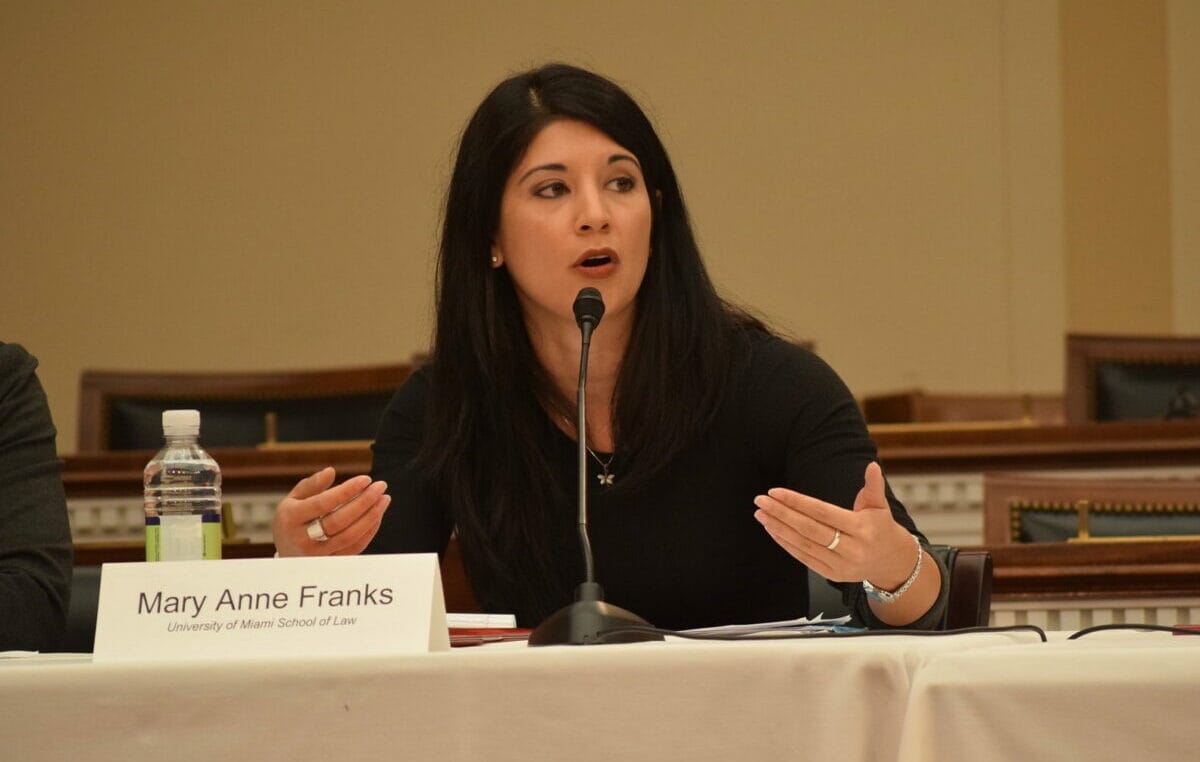State of the Net Panelists Clash Over Section 230 Interpretations
Panelists discussed the recent oral arguments in Gonzalez v. Google.
Em McPhie

WASHINGTON, March 6, 2023 — Experts at the State of the Net conference on Monday expressed a wide range of viewpoints about how Section 230 should be interpreted in the context of Gonzalez v. Google, an intermediary liability case recently argued before the Supreme Court.
If the justices want to understand Section 230’s original intent, NetChoice CEO Steve DelBianco said, they should turn to the law’s original co-authors — Sen. Ron Wyden, D-Ore., and former Rep. Chris Cox, now on the NetChoice board of directors. In January, Wyden and Cox filed an amicus brief urging the Supreme Court to uphold Section 230 of the Communications Decency Act.
Don’t miss the Big Tech & Speech Summit on Thursday, March 9 from 8:30 a.m. to 3:30 p.m. Broadband Breakfast is making a webinar of the summit available. Registrants and webinar participants receive two months’ complimentary membership in the Broadband Breakfast Club.
But Mary Anne Franks, professor at the University of Miami School of Law, argued that a modern-day interpretation of the law should be based on several factors other than the author’s explanation, such as the statute’s actual wording and its legislative history. “The law does not have to be subject to revisionist or self-serving interests of interpretations after the fact,” she said.
Franks emphasized the “Good Samaritan” aspect of Section 230, claiming that the law is supposed to “provide incentives for platforms to actually do the right thing.”
Alex Abdo, litigation director at Columbia University’s Knight First Amendment Institute, said he was sympathetic to Franks’ concerns and agreed that tech companies are generally governed by financial motivations, rather than a dedication to free speech or the public interest. Not only can online platforms be exploited to cause harm, he said, they often amplify sensationalized and provocative speech by design.
However, Abdo maintained that Section 230 played a key role in protecting unpopular online speech — including content posted by human rights activists, government whistleblowers and dissidents — by making it less likely that social media platforms would feel the need to remove it.
DelBianco expressed measured optimism about the justices’ approach to Section 230, noting that Justice Clarence Thomas seemed to reject some of the algorithmic harm claims despite his previously expressed interest in altering Section 230. DelBianco also highlighted Justice Amy Coney Barrett’s line of questioning about whether an individual can be held liable for simply liking or retweeting content, calling it “one of the most surprising questions” of the oral arguments.
But despite their appreciation for certain aspects of the justices’ approach, multiple panelists agreed that changing Section 230 should be a careful and deliberate process, better suited to Congress than the courts. “I would much prefer a scalpel to a sledgehammer,” said Matt Wood, vice president of policy and general counsel at Free Press.
The Senate Judiciary Subcommittee on Privacy, Technology and the Law will hold a hearing on Wednesday to examine platform liability, focusing on Gonzalez.











Member discussion